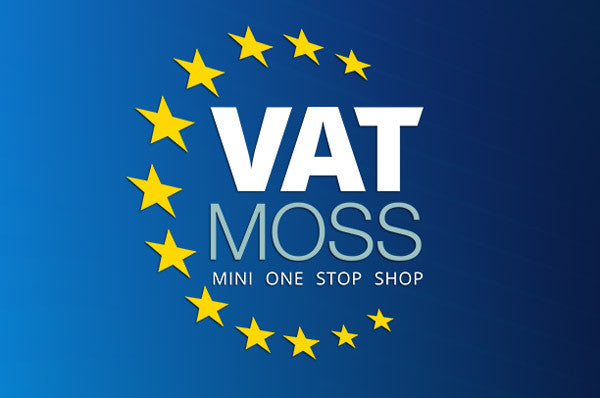Ebooks Direct implements new EU VAT regulations, 1/1/15
(DD says:) Like many of our European Union-based colleagues who sell digital goods (ebooks, comics, etc.), in recent months we’ve found ourselves faced with a challenge to the way we’ve done online business until now, specifically at our online ebook store, Ebooks Direct.
EU regulations originally formulated and passed in 2008—originally intended to keep large companies from exploiting the lower Value Added Tax (VAT) prices available for some goods, including digital goods, in some EU countries—will be coming into force on January 1, 2015. As is often the case with new legislation, this particular set of laws turns out to have had unexpected consequences for smaller businesses.
For those of you who haven’t read my earlier posting on this subject or haven’t been following the #VATMOSS or #VATMESS hashtags on Twitter, the basic idea of the law is this. Some countries in Europe, for example Luxembourg, have in the past had quite low VAT rates for the delivery of digital goods. Big companies would move their digital sales operations into those countries to take advantage of those lower VAT rates, which they then passed on to their customers as lower prices.
To stop this kind of thing happening—the idea being to level the playing field for the sale of digital goods right across the EU—a law was passed to force the sellers of digital goods to charge VAT not at the rate of the country where its operation was based, but at the rate of the EU country where the customer was located at time of purchase. The purchaser of the digital goods would have to provide the seller with three forms of identification confirming exactly where they were located, and the seller would then have to (a) pay the VAT charged on the transaction to the country in which the purchaser lived, and (b) retain records of the transaction, including the location information of the purchaser, for ten years following the purchase.
If you’re a large company with accountants this is one of those things you just shrug and deal with, since you’re already registered for VAT and you’ll just fold this extra paperwork and bureaucracy-management into all the other paperwork your accountants already deal with. However, if you’re (for example) someone on disability who’s keeping themselves afloat by selling digital comics, or a stay-at-home mom running a small electronic travel-publication business from her kitchen table—or for that matter, if you’re a pair of science fiction and fantasy writers running a small ebook publishing business from a tiny cottage at the foot of the Wicklow Mountains—then the extra bureaucracy and paperwork burden is not at all welcome. For some of our colleagues, this increased burden of regulations and bureaucracy simply means they’ll have to shut down. They can’t afford the cost of VAT registry or an accountant, or they won’t be able to procure the necessary IDs and proofs of location from their customers, much less store them for a decade.
This situation is even more onerous in places where, until now, businesses this small were spared having to register for VAT at all. But the EU law regarding sale of digital goods has no such eligibility threshold—no equivalent level above which you’re expected to afford accountancy services and so forth, since you’re making enough money to make it worthwhile registering for VAT in the first place. Instead, if you sell just one euro’s worth of e-book product or a single short story or digital comic to someone in the EU, that’s it. You must now register as a VAT-paying business, whatever that costs where you live, and then pay VAT from your customers’ purchases directly to the countries in which those purchasers live.
If your home nation is lucky enough to have one of these, you must pay all collected VAT to the Mini One-Stop Shop (MOSS) in your own country, which will then divvy up the collected VAT and send it out to the countries it needs to come to. The smallest businesses must now consider whether they can meet the expense and burden of data acquisition and retention that compliance with this law will force on them… or whether it’s an expense they just can’t meet, so that they’ll be forced to go out of business. (Please see articles like this one at ThisIsMoney.co.uk, or this one at the UK’s Telegraph newspaper, or this article at HuffPo, for more details. Or the VATMOSS “master post” at Rosie’s blog at One Man Band Accounting.)
…Does this all sound complicated? Yeah, it is. Does it sound like someone didn’t think through all the implications of this law? Yeah, that too. Especially since the irony of this situation is that the law was meant to keep the online companies from driving small online businesses and startups out of business. Instead, it’s having exactly the opposite effect. Many smaller e-publishers are now finding that the only way to keep publishing but avoid the burdens of compliance and data retention is to let big companies like Amazon do it for them… At a price.
The irony increases further when you consider that many EU-based small businesses, if they want to keep trading, will have to elect to stop selling to the EU. Yet even if they do stop doing this, such businesses face being forced into exactly the same kind of data acquisition and retention so that they can prove to their home VAT authorities that they haven't sold anything to anyone in the EU. As negative proofs usually are, it’s a nightmare—especially since the penalty for getting it wrong is “unlimited fines“…
Peter and I, like thousands of our colleagues across the EU right now, have spent the last month or so trying to work out our options under the law, and how we need to go forward. The difficulty has been that national governments, and the VAT departments of those national governments, have massively underestimated the number of small businesses affected by this change in the law. Most of their attention having been turned on larger businesses that were already registered for VAT. As a result, local VAT authorities are unclear even now on some of the details of just how this law will affect the smallest businesses involved, making it difficult for the accountants who serve the “less-small” of the smaller businesses to get a grip on what to tell their clients.
As a result, it’s taken nearly a month and a half for Peter and me to finish evaluating our options and talking through what we’re going to do next. Here’s our own situation.
Right now, we could probably stop selling into the EU and not have it be a big deal, since at present only a small fraction of our sales comes from EU countries. At the same time, the EU contains a set of language-markets we’d like to expand into, not avoid. So our attention has been pretty much focused on this question: will all the trouble the new law’s going to cause us, in terms of compliance and data retention, prove worthwhile either in the short term or in the long?
Additionally, we live in an EU country and have no plans to move out of the EU. The tangled nature of the local VAT situation as it applies to small businesses suggests that we’d probably have to change the way we do business anyway, especially in terms of acquiring purchase-location information from our customers, in order to obtain the required “negative proof” that we were not selling ebooks into the EU.
Fortunately, the store platform that we use (Shopify) is equipped to acquire the information we need, and to handle the correct VAT on purchases, if we make certain changes in the way we do business. We’re lucky to be in this situation (and all too painfully aware that many of our online colleagues aren’t). It means our headaches will be miniscule compared to those of other small e-book publishers and providers of digital goods faced with similar challenges, who’ll either be forced to stop selling into the EU or just go out of business entirely.
So, at Ebooks Direct, this is how it’s going to go.
First of all, the store will remain open. But there’ll be some changes in the way we do business. We’re not wild about them, but they’re necessary, and we hope our customers will understand.
We will continue to sell ebooks into the European Union.
Starting on 1 January 2015, we’ll be charging EU customers, as the change in the law requires, VAT based on their country of purchase.
However, to enable us to comply with the VATMOSS legislation:
Starting on January 1, all customers in our store, whether located in the European Union or not, must provide us with their residential or business address. No sale will go through without this data.
When the new law initially became effective, and through 2015, our customers needed to open an account with us to make a purchase. At the time this post was most recently revised (July of 2017) that's no longer necessary, as long as your address information is collected at the time of sale.
If you do elect to open an account with us (which makes things simpler and quicker should you decide to come back and buy something else eventually -- and we hope you will!), all you need to know is that we will never, ever pass your data to any other retailer, online or otherwise.
Also: we will never, ever use this information to send you promotional material that you haven’t asked for. For new buyers making a purchase or opening an account, the default position is "no marketing." Want to receive news from us when we've got something new in the store? Fine -- just click the box to accept it. (We don’t send newsletters out more than once every month or two, but that’s not the point. The point is your right to choose what marketing you want to see.) Additionally, every page at the Ebooks Direct store has a box above the footer where you can sign up for our mailing list at MailChimp in case you do want to see marketing. Our mailing list members get special discounts and advance deals on new releases that other customers don’t.
…I want to emphasize here that we really hate having to collect address info from people. Admittedly it's much simpler and quicker and less annoying for everyone involved if you can just click on an ebook and pay for it and go. But times change, laws change, and we can no longer conduct our business that way. If it means we lose you as a customer, we're really sorry. We’ll miss you, and (assuming that you’ve previously purchased from us at some time) please accept our warm thanks for your past support.
As regards what will be happening in the store today (December 30) and tomorrow (December 31): Nothing different from anything that’s happened earlier this month (or the previous four years). But for these last two days, we will not be charging VAT on purchases. If you are an EU-based customer who wants to purchase our e-books without having VAT added to the price, today and tomorrow are your last chances to do so. At 2200 GMT on December 31, we will be closing down Ebooks Direct for approximately 12 hours in order to make the necessary changes in our store’s order-handling software so that VAT is charged appropriately to EU residents. (And so that we can spend New Year’s Eve at the local pub with our neighbors.)
…If you’re a subscriber to the store’s mailing list, you’ll be receiving a note about all the above from us, along with a little something to thank you for being our customer this year.
Finally: Along with our many online colleagues, we will continue to put what pressure we can on our MEPs and national lawmakers to revise this law, or at least rationalize its implementation, so that it better suits the needs of the small businesses and microbusinesses it was theoretically meant to assist.
Meanwhile, thanks to all our customers for your support in the past years. We look forward to bringing you more new ebooks during 2015.





0 comments /